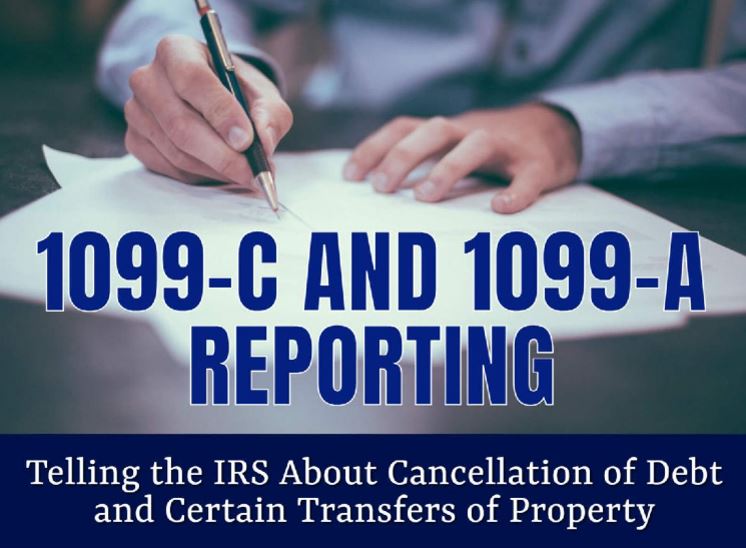
Telling the IRS About Cancellation of Debt and Certain Transfers of Property
December 6, 2022
10:00 a.m. PST (11 MST, 12 CST, 1 EST)
As the end of the year draws near, it’s time to start thinking about tax filings—including 1099-C and 1099-A reporting. Neither is difficult (especially after changes made to 1099-C rules a few years ago), but both have potential pitfalls that can have nasty consequences if you aren’t careful or don’t know what you’re doing.
Do you understand when a 1099-C must be filed, when it needn’t be filed, and why it is important not to file one if you don’t have to? Do you understand the risks involved when 1099-C reporting is discussed with a consumer?
Do you understand how a 1099-A differs from a 1099-C, and when a 1099-A must be filed?
May you tell a consumer a 1099-C or 1099-A will be filed, or must you keep it a secret? Must you tell? What if you are discussing a settlement that may result in filing? Is there any language you should be careful of using? (Hint: Yes!)
The IRS requirements are not difficult, but they do take some thought. During this program, participants learn:
- Exactly which circumstances require the filing of an IRS Form 1099-C (“Cancellation of Debt”)
- The exceptions that allow you to skip some 1099-C reports
- Exactly which circumstances require the filing of an IRS Form 1099-A (“Acquisition or Abandonment of Secured Property”), and when it should be filed in addition to a 1099-C
- Why you are already at a disadvantage if you are just now starting to prepare your financial institution’s 2022 reporting
- The major areas of litigation involving 1099-C reporting over the past few years, how to respond if your financial institution becomes involved, and how to avoid disputes in the first place.
- How courts are treating claims that the filing of a 1099-C precludes further efforts to collect
- Whether filing of a 1099-C serves to extinguish a lien on real or personal property
- The decision your financial institution should make and the policy you should enact now—before filing 1099-C reports for 2022—that will improve your position if you become embroiled in litigation.
Learn More and Register Here!
Speaker: Eric North

Eric North, the primary speaker at the programs listed on this site, has represented the interests of credit unions and other financial institutions as an attorney with respect to litigation, compliance, governance, bankruptcy and collections matters since 1984. Eric has appeared in state and federal courts throughout the State of California, and has argued before the Ninth Circuit Court of Appeal.
Eric is also a nationally recognized speaker on legal issues relating to consumer lending institutions, and has presented hundreds of programs on behalf of national, state and local leagues and associations from around the country.
NorthLegal Training and Publications | 5115 N. Dysart Rd, No. 202-500, Litchfield Park, AZ 85340

1099-C and 1099-A Reporting! – Credit Union Collections – NorthLegal











Facebook Comments